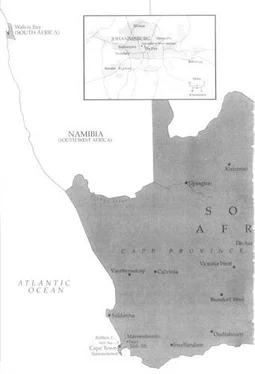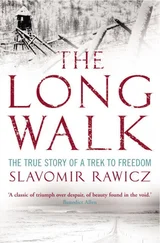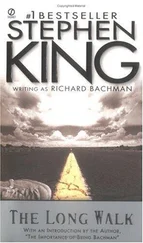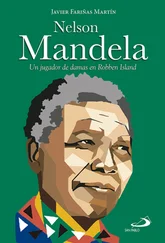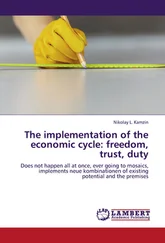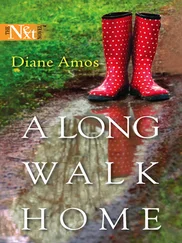Nelson Mandela - The Long Walk to Freedom
Здесь есть возможность читать онлайн «Nelson Mandela - The Long Walk to Freedom» весь текст электронной книги совершенно бесплатно (целиком полную версию без сокращений). В некоторых случаях можно слушать аудио, скачать через торрент в формате fb2 и присутствует краткое содержание. Жанр: Старинная литература, на английском языке. Описание произведения, (предисловие) а так же отзывы посетителей доступны на портале библиотеки ЛибКат.
- Название:The Long Walk to Freedom
- Автор:
- Жанр:
- Год:неизвестен
- ISBN:нет данных
- Рейтинг книги:5 / 5. Голосов: 1
-
Избранное:Добавить в избранное
- Отзывы:
-
Ваша оценка:
- 100
- 1
- 2
- 3
- 4
- 5
The Long Walk to Freedom: краткое содержание, описание и аннотация
Предлагаем к чтению аннотацию, описание, краткое содержание или предисловие (зависит от того, что написал сам автор книги «The Long Walk to Freedom»). Если вы не нашли необходимую информацию о книге — напишите в комментариях, мы постараемся отыскать её.
The Long Walk to Freedom — читать онлайн бесплатно полную книгу (весь текст) целиком
Ниже представлен текст книги, разбитый по страницам. Система сохранения места последней прочитанной страницы, позволяет с удобством читать онлайн бесплатно книгу «The Long Walk to Freedom», без необходимости каждый раз заново искать на чём Вы остановились. Поставьте закладку, и сможете в любой момент перейти на страницу, на которой закончили чтение.
Интервал:
Закладка:
The night before the circumcision, there was a ceremony near our huts with singing and dancing. Women came from the nearby villages, and we danced to their singing and clapping. As the music became faster and louder, our dance turned more frenzied and we forgot for a moment what lay ahead.
At dawn, when the stars were still in the sky, we began our preparations. We were escorted to the river to bathe in its cold waters, a ritual that signified our purification before the ceremony. The ceremony was at midday, and we were commanded to stand in a row in a clearing some distance from the river where a crowd of parents and relatives, including the regent, as well as a handful of chiefs and counselors, had gathered. We were clad only in our blankets, and as the ceremony began, with drums pounding, we were ordered to sit on a blanket on the ground with our legs spread out in front of us. I was tense and anxious, uncertain of how I would react when the critical moment came. Flinching or crying out was a sign of weakness and stigmatized one’s manhood. I was determined not to disgrace myself, the group, or my guardian. Circumcision is a trial of bravery and stoicism; no anesthetic is used; a man must suffer in silence.
To the right, out of the corner of my eye, I could see a thin, elderly man emerge from a tent and kneel in front of the first boy. There was excitement in the crowd, and I shuddered slightly knowing that the ritual was about to begin. The old man was a famous ingcibi, a circumcision expert, from Gcalekaland, who would use his assegai to change us from boys to men with a single blow.
Suddenly, I heard the first boy cry out, “Ndiyindoda!” (I am a man!), which we were trained to say in the moment of circumcision. Seconds later, I heard Justice’s strangled voice pronounce the same phrase. There were now two boys before the ingcibi reached me, and my mind must have gone blank because before I knew it, the old man was kneeling in front of me. I looked directly into his eyes. He was pale, and though the day was cold, his face was shining with perspiration. His hands moved so fast they seemed to be controlled by an otherworldly force. Without a word, he took my foreskin, pulled it forward, and then, in a single motion, brought down his assegai. I felt as if fire was shooting through my veins; the pain was so intense that I buried my chin into my chest. Many seconds seemed to pass before I remembered the cry, and then I recovered and called out, “Ndiyindoda!”
I looked down and saw a perfect cut, clean and round like a ring. But I felt ashamed because the other boys seemed much stronger and braver than I had been; they had called out more promptly than I had. I was distressed that I had been disabled, however briefly, by the pain, and I did my best to hide my agony. A boy may cry; a man conceals his pain.
I had now taken the essential step in the life of every Xhosa man. Now, I might marry, set up my own home, and plow my own field. I could now be admitted to the councils of the community; my words would be taken seriously. At the ceremony, I was given my circumcision name, Dalibunga, meaning “Founder of the Bunga,” the traditional ruling body of the Transkei. To Xhosa traditionalists, this name is more acceptable than either of my two previous given names, Rolihlahla or Nelson, and I was proud to hear my new name pronounced: Dalibunga.
Immediately after the blow had been delivered, an assistant who follows the circumcision master takes the foreskin that is on the ground and ties it to a corner of your blanket. Our wounds were then dressed with a healing plant, the leaves of which were thorny on the outside but smooth on the inside, which absorbed the blood and other secretions.
At the conclusion of the ceremony, we returned to our huts, where a fire was burning with wet wood that cast off clouds of smoke, which was thought to promote healing. We were ordered to lie on our backs in the smoky huts, with one leg flat, and one leg bent. We were now abakhwetha, initiates into the world of manhood. We were looked after by an amakhankatha, or guardian, who explained the rules we must follow if we were to enter manhood properly. The first chore of the amakhankatha was to paint our naked and shaved bodies from head to foot in white ocher, turning us into ghosts. The white chalk symbolized our purity, and I still recall how stiff the dried clay felt on my body.
That first night, at midnight, an attendant, or ikhankatha, crept around the hut, gently waking each of us. We were then instructed to leave the hut and go tramping through the night to bury our foreskins. The traditional reason for this practice was so that our foreskins would be hidden before wizards could use them for evil purposes, but, symbolically, we were also burying our youth. I did not want to leave the warm hut and wander through the bush in the darkness, but I walked into the trees and, after a few minutes, untied my foreskin and buried it in the earth. I felt as though I had now discarded the last remnant of my childhood.
We lived in our two huts — thirteen in each — while our wounds healed. When outside the huts, we were covered in blankets, for we were not allowed to be seen by women. It was a period of quietude, a kind of spiritual preparation for the trials of manhood that lay ahead. On the day of our reemergence, we went down to the river early in the morning to wash away the white ocher in the waters of the Mbashe. Once we were clean and dry, we were coated in red ocher. The tradition was that one should sleep with a woman, who later may become one’s wife, and she rubs off the pigment with her body. In my case, however, the ocher was removed with a mixture of fat and lard.

At the end of our seclusion, the lodges and all their contents were burned, destroying our last links to childhood, and a great ceremony was held to welcome us as men to society. Our families, friends, and local chiefs gathered for speeches, songs, and gift-giving. I was given two heifers and four sheep, and felt far richer than I ever had before. I who had never owned anything suddenly possessed property. It was a heady feeling, even though my gifts were paltry next to those of Justice, who inherited an entire herd. I was not jealous of Justice’s gifts. He was the son of a king; I was merely destined to be a counselor to a king. I felt strong and proud that day. I remember walking differently on that day, straighter, taller, firmer. I was hopeful, and thinking that I might someday have wealth, property, and status.
The main speaker of the day was Chief Meligqili, the son of Dalindyebo, and after listening to him, my gaily colored dreams suddenly darkened. He began conventionally, remarking on how fine it was that we were continuing a tradition that had been going on for as long as anyone could remember. Then he turned to us and his tone suddenly changed. “There sit our sons,” he said, “young, healthy, and handsome, the flower of the Xhosa tribe, the pride of our nation. We have just circumcised them in a ritual that promises them manhood, but I am here to tell you that it is an empty, illusory promise, a promise than can never be fulfilled. For we Xhosas, and all black South Africans, are a conquered people. We are slaves in our own country. We are tenants on our own soil. We have no strength, no power, no control over our own destiny in the land of our birth. They will go to cities where they will live in shacks and drink cheap alcohol all because we have no land to give them where they could prosper and multiply. They will cough their lungs out deep in the bowels of the white man’s mines, destroying their health, never seeing the sun, so that the white man can live a life of unequaled prosperity. Among these young men are chiefs who will never rule because we have no power to govern ourselves; soldiers who will never fight for we have no weapons to fight with; scholars who will never teach because we have no place for them to study. The abilities, the intelligence, the promise of these young men will be squandered in their attempt to eke out a living doing the simplest, most mindless chores for the white man. These gifts today are naught, for we cannot give them the greatest gift of all, which is freedom and independence. I well know that Qamata is all-seeing and never sleeps, but I have a suspicion that Qamata may in fact be dozing. If this is the case, the sooner I die the better because then I can meet him and shake him awake and tell him that the children of Ngubengcuka, the flower of the Xhosa nation, are dying.”
Читать дальшеИнтервал:
Закладка:
Похожие книги на «The Long Walk to Freedom»
Представляем Вашему вниманию похожие книги на «The Long Walk to Freedom» списком для выбора. Мы отобрали схожую по названию и смыслу литературу в надежде предоставить читателям больше вариантов отыскать новые, интересные, ещё непрочитанные произведения.
Обсуждение, отзывы о книге «The Long Walk to Freedom» и просто собственные мнения читателей. Оставьте ваши комментарии, напишите, что Вы думаете о произведении, его смысле или главных героях. Укажите что конкретно понравилось, а что нет, и почему Вы так считаете.
